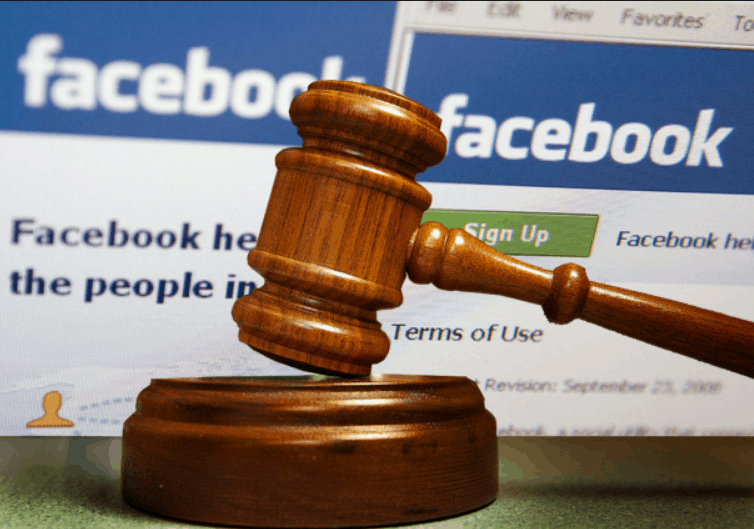

Date: July 7, 2021Author: International Law Blog3 Comments
Isabela Coleto, LLM in Advanced Studies in Public International Law from Leiden University and former Legal Consultant for the Defence at the International Criminal Court.
Introduction
The proliferation, accessibility, connectivity, and capabilities of camera-embedded and internet-enabled mobile devices are transforming the way criminal investigators and prosecutors collect, evaluate, and present evidence at trial. This is particularly true in international criminal trials, where prosecutors work to a high standard of proof for serious accusations of crimes committed in highly complex conflicts. It is the Prosecutor’s duty to present a voluminous body of evidence supporting its case theory and explaining the context of the conflict and the requisite elements of crimes and modes of liability. In this framework, social media evidence is capable of providing far more information than any other type of source. The pitfalls of social media are also stark, to name a few: the ease with which criminals can manipulate social media exhibits, the lack of standards to prove ownership of publications, Facebook pages and online communications in general, and the overwhelming volume of such evidence (see, for example, in Syria, where experts say there is more footage of the conflict than its actual duration).
This post will explore the admissibility and use of Facebook evidence before the International Criminal Court (ICC), drawing a parallel between the first case in which this issue appeared, the Bemba et al. case, and the recent history of the ICC, with the Yekatom and Ngaïssona case. Among all social media evidence, Facebook evidence imposes a particular challenge as to the ownership of Facebook pages, accounts and posts, whereas this is currently the most widely used social media (and therefore the one with the potential to contain the most evidence). The post will explore the possible avenues and the way forward for ICC judges to handle evidence obtained from Facebook in trials.
If the judges in Bemba et al. managed to avoid ruling on Facebook evidence, the Prosecution in Yekatom and Ngaïssona relies considerably more on this type of evidence for the Trial Chamber V to remain silent on the topic. More cases on the horizon of the ICC, such as Al-Werfalli, Said, and Gicheru, will likely impose similar challenges, as they all concern situations which took place after 2012, when Facebook became a popular social media. Thus, time is ripe for the Chambers of the ICC to find ways to rule on the admissibility and proper weight of Facebook evidence at trials. To this end, it is imperative to recruit specialised staff and involve the Defence in the early stages of prosecutorial investigations.
From Bemba et al. to Yekatom and Ngaïssona, what has changed?
The first time the Chambers of the ICC addressed the issue of Facebook evidence was in the Bemba et al. case. In Bemba et. al, the Prosecution accused the defendants of offences against the administration of justice (Article 70 of the Rome Statute of the International Criminal Court) following an anonymous email informing them of the bribery of a witness in the Bemba case. In Bemba, the accused was acquitted of the charges of command responsibility in the context of the 2002-2003 armed conflict in the Central African Republic featuring the governmental authorities, supported by the MLC group, led by Bemba in one side, and the rebels organized around General Bozizé in the other. The Prosecutor in Bemba et al. introduced Facebook evidence in the form of four photographs that were used to link witnesses and corroborate other evidence. The Defence argued that the photos were not prima facie authentic or reliable since the creation of a Facebook account does not require valid and verifiable identification and, therefore, it was not possible to ascertain that a Facebook account under a certain name is attributable to that person. The Prosecution opposed the Defence’s argument. In its final judgement, the Trial Chamber did not address the issue, most probably because other types of evidence, such as witness testimony, supported what the photos intended to prove.
In Yekatom and Ngaïssona, the two accused are being charged of war crimes and crimes against humanity allegedly committed against civilians of Muslim descent between December 2013 and December 2014 in the Central African Republic. The time frame of the conflict explains the Prosecution’s heavy reliance on Facebook evidence. At trial, the Prosecution relies on Facebook communication evidence to prove core contextual elements of war crimes and crimes against humanity, such as the anti-Muslim animus and knowledge and intent of the accused, as well as to prove key elements of liability such as the element of alleged orders and the element of alleged provision of equipment and ammunition. The Prosecution additionally relies on this type of evidence to corroborate the Prosecution case theory. The Ngaïssona defence, in its opening statements, argued that Facebook communication does not withstand the highest evidentiary standard that the Court requires and announced that they will challenge such evidence.
Possible avenues for the ICC in dealing with Facebook evidence and the way forward
The ICC treats evidence following two parameters: admissibility and weight. Regarding admissibility, there are three possible ways that Facebook evidence may be admitted at the Yekatom and Ngaïssona trial: as lead information only, for corroboration, or as direct evidence. That, in addition to the possibility of it not being admitted at trial at all. Weight, in turn, will determine how much the Court will rely at trial on the evidence to prove key elements of the Prosecution case theory.
Rule 69(4) of the ICC Rules of Procedure and Evidence (“Rules”) directs judges to admit evidence “taking into account, inter alia, the probative value of the evidence and any prejudice that such evidence may cause to a fair trial or to a fair evaluation of the testimony of a witness”. Even though, historically, the Chambers at the ICC have placed more relevance into testimony evidence, they encourage parties to submit any documentary evidence, including digital evidence, to ensure completeness of information at trials.
After the admission of a piece of evidence at trial, in accordance with Rule 63(2) of the Rules, ICC judges determine the probative value and the “appropriate weight” of the admitted evidence. This takes place at the end of a case, when they are assessing the evidence as a whole.
In Katanga et al., the Trial Chamber explained the difference between probative value and evidentiary weight. While probative value is determined “on the basis of a number of considerations pertaining to the inherent characteristics of the evidence,” evidentiary weight “is the relative importance that is attached to a piece of evidence in deciding whether a certain issue has been proven or not”.
Probative value in Katanga et al was twofold. Firstly, it considered the “reliability of the exhibit”, that is, whether the evidence was not tampered with. Secondly, it considered “the measure by which an item of evidence is likely to influence the determination of a particular issue in the case”, that is, whether the piece of evidence in fact reflects the information it allegedly supports.
Once the piece of evidence is found to be reliable, the Court then determines its weight, based on the significance of the evidence to advance the Chamber’s inquiries. According to the Court in Katanga et al, evidence would be deemed significant if: (1) it significantly helps the Chamber reach a “conclusion about the existence or non-existence of a material fact”; and/or (2) it helps the Chamber assess the “the reliability of other evidence in the case.” Alternatively, a piece of evidence may be relevant, but have little to no impact on the issue before the court and thus be deemed insignificant.
As stated at the beginning of the post, the Chambers of the ICC tend to encourage parties to bring evidence that will corroborate with their case theory. Additionally, the Chamber will, in principle, admit evidence that complies with the Court’s parameter for admissibility of social media evidence, highlighted in the ICC’s e-Court Protocol. Therefore, the Chambers will likely accept the Prosecution’s Facebook evidence at trial. Of paramount consideration is the final weight that Trial Chamber V will afford to that evidence.
Affording Facebook evidence a high weight, or, in other words, a high probative value, would mean that such an evidence would, on its face, ultimately serve to prove many of the elements of the Prosecution case theory. However, Facebook evidence raises substantial concerns regarding fair trial rights, especially if the underlying information is compiled in such a way that it seems determinative of the case; editing of such sensitive information would be problematic for the truth-finding mission of the Court. Relatedly, because Facebook and open-source investigation comprise new and complex technological methods, opposing counsel and Chambers may not have the necessary expertise to adequately interrogate the handling of such evidence. Another manifest concern would be the volume of evidence that the Defence would have to deal with and possibly challenge in an already advanced phase of the case.
On the other hand, if attributed a low probative value, Facebook evidence, if not supported by any additional evidence will not serve to prove the existence or non-existence of a material fact. That is, if the Prosecution does not provide any additional evidence corroborating what the Facebook evidence it relies on purports, much of its case theory will go unproven. In a world where Facebook and other social media messages play a significant role in our means of communication and interaction, affording Facebook messages a low probative value in this and future cases would, too, have the potential to undermine the Court’s truth-finding mission.
A solution for this stalemate could be for the ICC to allocate more social media evidence experts to the Defence and Prosecution teams to attest to the veracity and reliability of such evidence. Additional provisions for including the Defence at earlier stages of the investigation would also be important to ensure that it will have adequate time to deal with such a large amount of evidence. Such provisions would allow the Chambers to adequately assess the weight a Facebook evidence should be given at trials while observing fair trial rights and the Court’s truth-seeking mission.
Conclusion
Facebook evidence will continue to play a vital role in criminal investigations going forward, as it plays a vital role in our everyday lives. The benefits of it are multiple, but its potential to assess more insights of a conflict than a witness, with its perspective of it limited to their experiences, should not be underestimated by the Chambers at the ICC. The admissibility of such evidence, however, imposes countless challenges, especially in terms of its reliability and in affecting fair trial rights. With new cases on the horizon, allowing more Facebook and social media experts in Prosecution and Defence investigations and an earlier inclusion of the Defence in the process of obtaining such evidence will allow the Chambers greater freedom to properly assess the weight of this type of evidence in upcoming trials.
